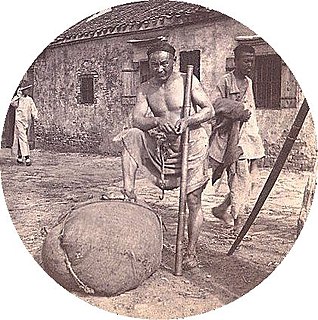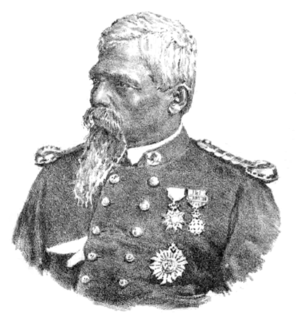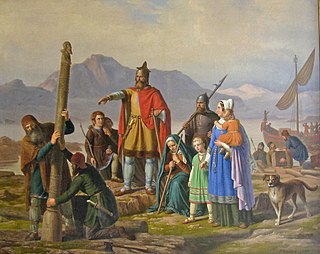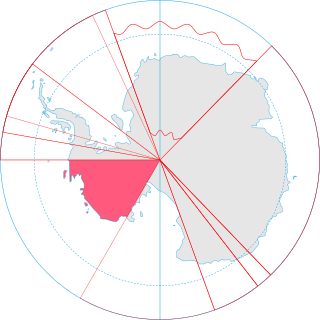 W
WColonialism is the policy of a country seeking to extend or retain its authority over other people or territories, generally with the aim of economic dominance. In the process of colonisation, colonisers may impose their religion, language, economics, and other cultural practices on indigenous peoples. The foreign administrators rule the territory in pursuit of their interests, seeking to benefit from the colonised region's people and resources.
 W
WA colony is a territory governed by people from another country. In a colony the top-level administration is under direct control of its colonizers, but remains seperate to the administration of the country of the colonizers, the metropolitan state. Therefore colonies are either a non-self-governing form of dependent territory, or a self-governing colony under settler colonial rule.
 W
WCascadia is a bioregion and bioregional movement located within the western region of North America. Potential boundaries differ, with some drawn along existing political state and provincial lines, and others drawn along larger ecological, cultural, political, and economic boundaries. The boundaries are generally those defined by the Cascadia Bioregion.
 W
WColonial Conquest is a turn-based strategy video game developed by Strategic Simulations and released in 1985 for Commodore 64, Atari 8-bit family, and Apple II. Ports by Andromeda Software were released for the Atari ST in 1987 and NEC PC-9801 in 1989.
 W
WThe word coolie was first popularized in the 16th century by European traders across Asia, and by the 18th century would refer to migrant Indian or Chinese laborers, and by the 19th century, would gain a new definition of the systematic shipping and hiring of Asian workers under contract on plantations that had been formerly worked by enslaved Africans. The word has had a variety of other implications and is sometimes regarded as offensive or a pejorative, depending upon the historical and geographical context; in India, its country of origin, it is still considered a derogatory slur. It is similar, in many respects, to the Spanish term peón, although both terms are used in some countries with different implications.
 W
WGuido Corni was a colonial governor of Italian Somaliland.
 W
WDetribalization is the process by which persons who belong to a particular Indigenous ethnic identity or community are detached from that identity or community through the deliberate efforts of colonizers and/or the larger effects of colonialism.
 W
WThe discovery doctrine, also called doctrine of discovery, provided a philosophical framework for Christian explorers, to lay claim to territories uninhabited by Christians. Under this belief, title to lands lay with the government whose subjects travelled to and occupied a territory whose inhabitants were not subjects of a European Christian monarch. The doctrine was strongly held by King Ferdinand and Queen Isabella of Spain who financed Columbus' first expedition to America. The Spanish monarchs were strongly backed on this by Pope Alexander VI, who confirmed their right of possession of all newly discovered lands in the Americas. He repeated what had been said by earlier Popes such as Nicholas V. As described by the Upstander Project,Two papal bulls, in particular, stand out: (1) Pope Nicholas V issued "Romanus Pontifex" in 1455, granting the Portuguese a monopoly of trade with Africa and authorizing the enslavement of local people; (2) Pope Alexander VI issued the Papal Bull “Inter Caetera” in 1493 to justify Christian European explorers’ claims on land and waterways they allegedly discovered, and promote Christian domination and superiority, and has been applied in Africa, Asia, Australia, New Zealand, and the Americas. The 1493 Papal decree aimed to justify Christian European explorers’ claims on land and waterways they allegedly discovered, and promote Christian domination and superiority, and has been applied in Africa, Asia, Australia, New Zealand, and the Americas. If an explorer proclaims to have discovered the land in the name of a Christian European monarch, plants a flag in its soil, and reports his “discovery” to the European rulers and returns to occupy it, the land is now his, even if someone else was there first.
 W
WThe Emirate of Abdelkader, Resistance of Abd al-Qadir, or the Emirate of Mascara, was founded by Abdelkader al-Jazairi with the allegiance of the people of Algeria to resist the French conquest of Algeria with its first capital at Mascara.
 W
WExploitation colonialism is the national economic policy of conquering a country to exploit its population as labour and its natural resources as raw material. The practice of exploitation colonialism contrasts with settler colonialism, the policy of conquering a country to establish a branch of the metropole (motherland). A reason for which a country might practice exploitation colonialism is the immediate financial gain produced by the low-cost extraction of raw materials by means of a native people, usually administered by a colonial government.
 W
WAn Indigenous Peoples' History of the United States is a book written by the activist and historian Roxanne Dunbar-Ortiz and published by Beacon Press. It is the third of a series of five ReVisioning books which reconstruct and reinterpret U.S. history from marginalized peoples' perspectives. On July 23, 2019, the same press published An Indigenous Peoples' History of the United States for Young People, an adaptation by Jean Mendoza and Debbie Reese of Dunbar-Ortiz's original volume.
 W
WKeijō Imperial University , colloquially referred to as Jōdai (城大), was an Imperial University of Japan that existed between 1924 and 1946. This university was established in 1924 in Gyeongseong, known as Keijō during the period of Japanese occupation of Korea, now modern-day Seoul, South Korea. Keijō Imperial University was abolished by the United States Army Military Government in Korea (USAMGIK) in 1946, following the Japanese surrender to the Allies and the subsequent withdrawal of Japan from its occupation of Korea at the end of World War II.
 W
WLoaded: A Disarming History of the Second Amendment is a book written by the historian Roxanne Dunbar-Ortiz and published by City Lights Books. It takes a close and unexpected look at the historical origins of the Second Amendment to the United States Constitution. Despite being no fan of guns, Dunbar approaches the subject from neither the liberal nor the conservative side of the usual debate, instead digging deeply into the subject as a historian to unearth surprising facts.
 W
WManuel António de Sousa, also known as Gouveia, was a Portuguese merchant of Goan origin and military captain of Manica and Quiteve (Kiteve).
 W
WOcean colonization or ocean colonisation, is the theory of developing artificial structures, both floating on the ocean surface and submerged below, to extend the permanent living space available to society
 W
WThe pith helmet, also known as the safari helmet, sun helmet, topee, sola topee or topi, is a lightweight cloth-covered helmet made of sholapith. The pith helmet is an adaptation of the native salakot headgear of the Philippines.
 W
WThe Proclamation of Independence of Morocco, also translated as the Manifesto of Independence of Morocco or Proclamation of January 11, 1944, is a document in which Moroccan nationalists called for the independence of Morocco in its national entirety under Muhammad V Bin Yusuf, as well as the installment of a democratic, constitutional government to guarantee the rights of all segments of society. January 11 is an official government holiday in Morocco.
 W
WA settler is a person who has migrated to an area and established a permanent residence there, often to colonize the area. It is also used to describe people whose ancestors migrated to a new area, or who were born into an already established settler colony.
 W
WThe Stranger King theory offers a framework to understand global colonialism. It seeks to explain the apparent ease whereby many indigenous peoples subjugated themselves to an alien colonial power and places state formation by colonial powers within the continuum of earlier, similar but indigenous processes.
 W
WTerra nullius is a Latin expression meaning "nobody's land". It was a principle sometimes used in international law to justify claims that territory may be acquired by a state's occupation of it.